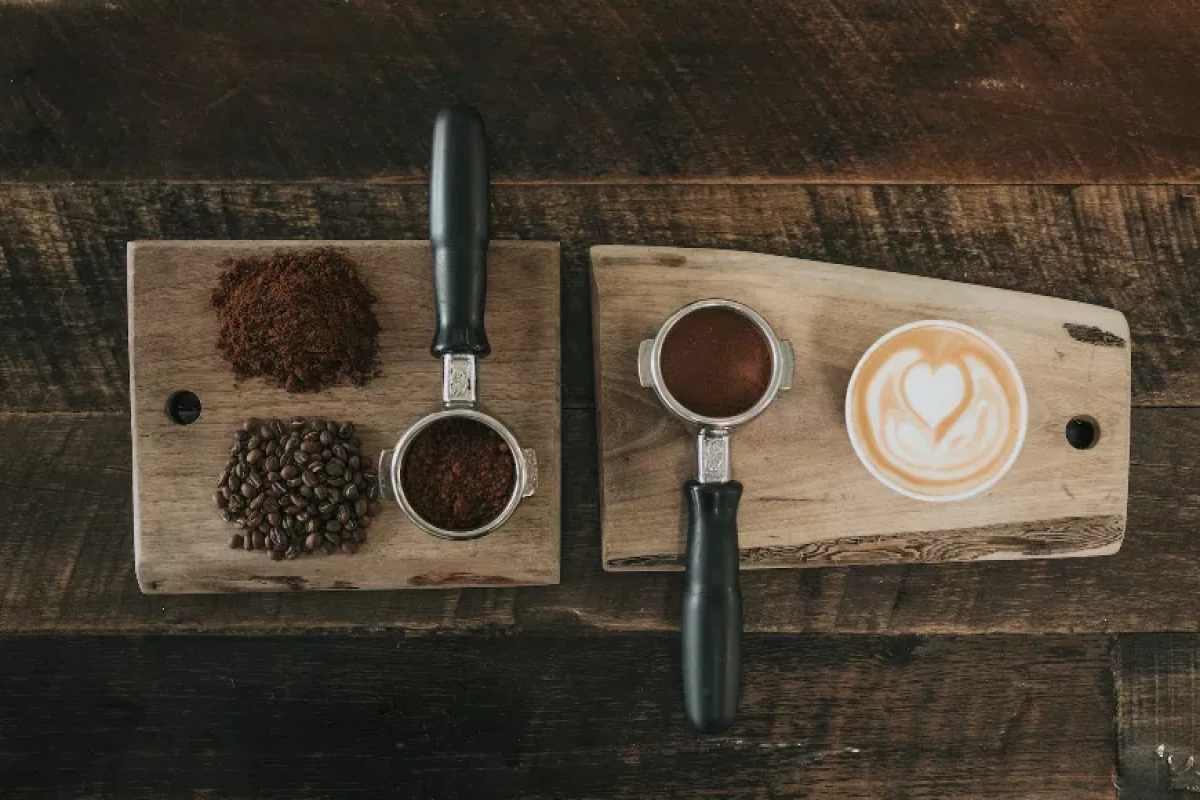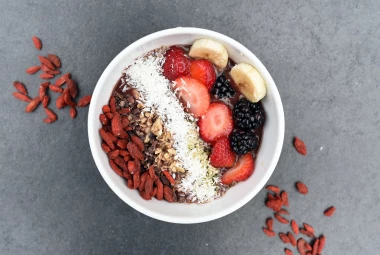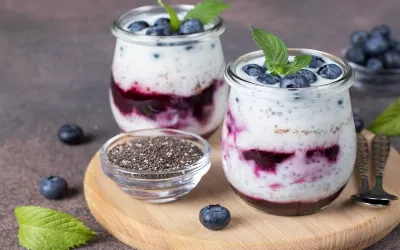Coffee Nutrition Facts and Health Benefits
Explore the nutritional value and health advantages of coffee in our concise guide. Sip smarter, live healthier

Whether you like your coffee black, with cream and sugar, or blended with all sorts of other flavors, there’s no denying that it’s a popular drink. In the United States alone, more than 60% of adults drink coffee every day, and on average, each person consumes about three cups per day. But what many people don’t know is that coffee isn’t just a delicious drink; it also has some impressive health benefits. Keep reading to learn more about the health benefits of coffee and the Nutrition Facts for different types of coffee.
Coffee Nutrition facts:
One cup of freshly prepared black coffee (240g), without any cream or sugar. The USDA has given the dietary facts listed below.
- Calories: 2.4
- Protein 0.12g
- Calcium, 2mg
- Caffeine 40mg
- Sodium: 4.8mg
- Carbohydrates: 0g
- Fiber: 0g
- Sugars: 0g
- Potassium: 118mg
- Magnesium: 7.2mg
Coffee Health Benefits:
Increased Levels Of Energy
Many people drink coffee to increase their energy levels. But what actually happens when you drink coffee? Coffee is a stimulant that contains caffeine. When you drink coffee, the caffeine is absorbed into the bloodstream and travels to the brain. Caffeine blocks the adenosine receptors, which are responsible for making you feel tired. This is why drinking coffee can help you feel more alert and wake up faster. Coffee also contains antioxidants that can protect the body against disease.
Weight Reduction
Coffee contains a compound called chlorogenic acid, which
has been shown to promote weight loss. Chlorogenic acid helps the body oxidize
fat, leading to a reduction in overall body weight.
Increase Physical Activities
If you’re like most people, you probably enjoy a cup of
coffee every now and then. But what you may not know is that coffee can also
help increase your physical activity. Coffee is a stimulant, which means it can
help increase your energy and alertness. This can be helpful when you’re trying
to get in a good workout or when you need to be more productive throughout the
day. In addition, coffee has been shown to improve athletic performance. This
is because the caffeine helps the body produce more adrenaline, which can give you
a boost during your workouts.
Lowered Probability Of Type 2 Diabetes
Type 2 diabetes is a disease that affects how the body uses
blood sugar (glucose). Glucose is a form of sugar in the blood. The body uses
it for energy. In type 2 diabetes, the body either doesn't make enough insulin
or can't use insulin properly. This causes sugar to build up in the blood.
A group of European researchers has found that coffee
consumption is inversely associated with the incidence of Type 2 diabetes.
After analyzing the data, the researchers found that people who drank coffee
were at a lower risk of developing Type 2 diabetes than those who didn’t drink
coffee. In fact, for every cup of coffee consumed per day, the risk of
developing Type 2 diabetes decreased by 7%. These findings support previous
research that has found coffee to be beneficial for health.
Lowered Probability Of Liver Disease
According to the latest study, coffee can help reduce the
risk of liver cirrhosis. Cirrhosis is a condition that affects the liver and
results in the replacement of healthy liver tissue with scar tissue. The scar
tissue blocks the flow of blood through the liver and slows down the processing
of nutrients and drugs. As a result, the liver can’t function properly and may
eventually fail. Cirrhosis can be caused by a variety of factors, including
hepatitis C, alcoholism, and obesity. However, in many cases the cause is
unknown. The new study, published in the journal Alimentary Pharmacology &
Therapeutics, found that drinking coffee was associated with a reduced risk of
cirrhosis.
Lowered Risk Of Parkinson's
Parkinson's Disease is a neurodegenerative disorder that
affects the nervous system, in particular, the brain. It is marked by the death
of dopamine-producing brain cells, which leads to a decrease in the production
of this neurotransmitter. This can cause problems with movement, mood, and
cognitive function. There is no cure for Parkinson's Disease, but there are
treatments that can help lessen its symptoms. One of these treatments is
coffee. Studies have shown that coffee can help reduce the risk of Parkinson's
Disease. This is likely due to the fact that coffee contains antioxidants that
help protect the brain from damage. Coffee may also help increase dopamine
levels, which would be beneficial for people with Parkinson's Disease.
Improved Cardiovascular Health
Heart disease is the leading cause of death for both men and
women in the United States. However, there are many things you can do to reduce
your risk of heart disease, including eating a healthy diet and exercising
regularly. the beneficial effects of coffee may be due to its antioxidants and
polyphenols, which are plant compounds that have been linked to better heart
health.
Enhanced Quality Of Sperm Cells
The researchers found that coffee increased the motility
of the sperm and improved the quality of the sperm cells. The coffee also
helped to protect the sperm cells from damage. This is not the first study to
show that coffee can improve sperm health. Previous studies have shown that coffee
can help to protect sperm cells from damage, increase sperm count, and improve
sperm motility. So, if you are trying to conceive, it may be a good idea to
drink a cup of coffee each day. And, if you are already pregnant, you can
continue to drink coffee without any concerns.
Coffee Types Or Idea
There are many different types of coffee, and each has its own unique flavor. In this article, I'll introduce you to some of the most popular types of coffee, and I'll show you how to make them at home. Arabica Coffee The first type of coffee I want to introduce you to is Arabica coffee. Arabica beans are considered to be the highest quality coffee beans in the world, and they are used in some of the most expensive coffees. The flavor of Arabica coffee is smooth and mellow, and it has a slightly sweet taste. It is often used in espresso blends because it adds a rich, smooth flavor. Robusta Coffee The next type of coffee I want to talk about is Robusta coffee. Robusta beans are less expensive than Arabica beans, and they have a bitter taste. Here is a list of some popular coffee you should check.
- Arabica Coffee
- Robusta
- Black
- Latte
- Cappuccino
- Americano
- Espresso
- Doppio
- Cortado
- Red Eye
- Galão
- Lungo
- Macchiato
- Mocha
- Ristretto
- Flat White
- Iced Coffee
- Iced Espresso
- Cold Brew
Side Effects Of Coffee
Anxiety Disorder
Consuming caffeine - which is found in coffee, tea, soda, and chocolate - can increase our risk of developing anxiety disorders. Those who consumed 300 mg of caffeine per day (about two 8-ounce cups of coffee) are twice as likely to develop anxiety disorders as those who don't consume any caffeine.
May Be Causing You Insomnia
Coffee addicts, beware – your daily routine might be causing you insomnia. In a study of more than 1,500 people, researchers found that people who drank coffee were more likely to suffer from insomnia. The link between coffee and sleeplessness was strongest in people who drank more than four cups of coffee per day.
Increase Digestive Issues
Coffee may increase digestive issues. According to the study, "the more coffee people consumed, the greater their likelihood of reported problems such as heartburn, acid reflux, and indigestion." Though additional research is needed to confirm these findings, it is still important to be aware of them. Coffee is a popular drink and many people enjoy it, but it may not be the best choice for everyone.
May Increase High Blood Pressure
Do you drink coffee? If so, you may want to reconsider – new
research has found that coffee may increase your blood pressure. people who
drank between one and three cups of coffee a day were up to 11 percent more
likely to have a high blood pressure than those who didn’t drink coffee.
Rapid Heart Rate Or Stroke
Drinking a moderate amount of coffee (3-5 cups per day) was associated with a decreased risk of developing cardiovascular disease, and drinking more than 5 cups per day was not associated with any additional benefits. However, the study also found that drinking more than 5 cups of coffee per day was associated with an increased risk of heart attack and stroke.
Frequent Urination and Urgency
Caffeine is a diuretic, meaning that it causes you to release more fluid than you consume. This can lead to dehydration and an increase in the frequency and urgency of urination. If you're experiencing any of these symptoms, cutting back on caffeine may help to improve your condition. Talk to your doctor if you're concerned about the effects of caffeine on your bladder.
Conclusion
Despite what you may have heard, coffee is not bad for you.
In fact, coffee may even help to prevent High Blood Pressure. Coffee is a rich
source of antioxidants, which can help to protect cells from damage. These
antioxidants can help to reduce inflammation and improve health overall. Coffee
also contains magnesium and potassium, which are both important minerals for
maintaining health. Magnesium can help to regulate blood pressure, while
potassium can help to lower blood pressure. So don’t be afraid to enjoy a cup
of coffee every day.












